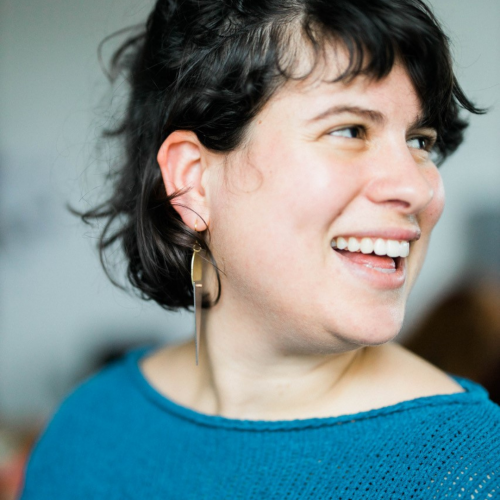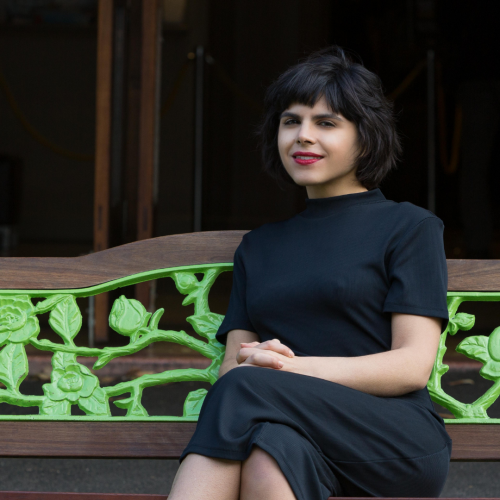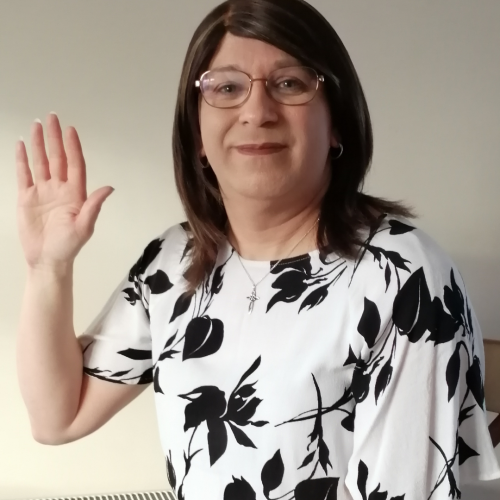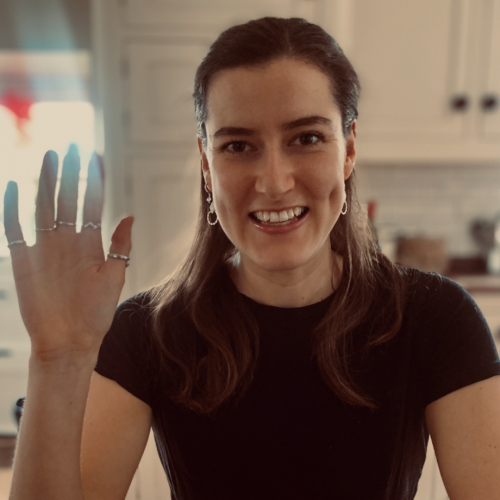This year’s International Women’s Day theme is Choose to Challenge. It appears the social investment and social enterprise sectors are already challenging the gender imbalance.
Outside of the sector in global businesses, women hold only 29% of senior management positions. Whereas an estimated 45% of the world’s social entrepreneurs are female, according to the Global Entrepreneurship Monitor. This is great progress, but we still have a way to go!
With more female-identifying people setting up organisations that create positive impact, in this post, we meet five female leaders who share lessons and advice from their inspiring journeys.
Alice Moxley, Pivot

Pivot empowers people experiencing homelessness by “taking making and enterprise into homeless hostels.” The team produces jewellery that has been designed to be made in hostels, bringing part-time, flexible and meaningful work-based training.
Reflecting on Choose to Challenge, founder and CEO Alice Moxley explains, “Pivot was born out of challenging the notion of what work should look like - we bring employment and training into hostels, as opposed to making our beneficiaries leave.”
“Challenging the systems in which you inevitably find yourself working in is the most important thing.”
Pivot has benefited greatly from social investment having used it twice in its first year “when we needed the extra investment to invest in growth.” Proving Pivot is commercially viable “has made us more confident in seeking social investment, we couldn’t have achieved what we have without it.”
CJ Tayeh, Flank

Social investment can be a critical helping hand during your social impact journey - something that CJ is considering for Flank. “Social innovation should be a collaborative, inclusive and enduring process, so my objective is to engage with the type of patient, community-focused capital that's going to support that.”
Hinnah Rafique, Generation Medics

Loneliness and isolation are common themes for social entrepreneurs, but there are ways to combat this. Dr Hinnah Rafique, founder of Generation Medics shares the most important lesson she’s learnt on her journey: “the strength in building a support network around you, because building a social enterprise can be lonely!” Finding solidarity, support and power in community is a key part of SSE’s learning programmes - which Hinnah and other leaders in Generation Medics have experienced.
Generation Medics explored social investment, but ultimately decided it wasn’t the right growth tool for their organisation at the time. To find out if it might work for your organisation, try the Good Finance “is it right for us tool”, and read more about Generation Medics here.
Reflecting on International Women’s Day, Hinnah says,
“We can all choose to challenge and call out inequality and gender bias. We can all choose to seek out and celebrate women’s achievements. We can, and we should.”
Claire Prosho, Claire's Transgender Talks

Claire’s Transgender Talks provides workshops, training and advice for organisations to learn more about the experiences of transgender people.
The most important lesson its founder Claire Prosho has learnt is “how to network in a way that works for me as someone with ADHD and a sensory processing issue”. Although quite draining, these opportunities “can be rewarding in terms of interacting with folk who have never knowingly met a trans person before.”
Part of Claire’s work is to challenge people’s misconceptions about trans people like herself. She recommends heading to longstanding LGBTQ+ organisations such as Stonewall, LGBT Foundation or Mermaids.
“Give a voice to the voiceless.”
“On the rare occasions that a trans person is platformed by the media, they are often picked to reflect the negative coverage being presented. We have no political representation, and the major political parties and current government are actively working against us. So, if you're able, give trans people an opportunity to speak for ourselves”.
Nell Byron, Be Her Lead

Be Her Lead empowers women in teaching to build resilience, foster wellbeing, and raise the aspirations of girls in their schools. The Be Her Lead programme trains teachers to lead transformative workshops targeted at girls.
Learning to pause and observe has been a key reflection for co-founder Nell Byron. “On the School for Social Entrepreneur’s Trade Up programme there has been a huge focus on research and deep-diving into the psyche and behaviours of the customer, and the social construct we are trying to change,” she explains.
“As social entrepreneurs, it can be hard not to focus on constant forward motion and development.
For Choose to Challenge, courage and curiosity are two words that sprung to mind for Nell.
“Challenging gender bias requires a huge amount of bravery. Shaking up the status quo requires more effort than ignoring the issues it possesses.”
If you’re looking to challenge gender inequality, use the Good Finance Fund Mapper tool to search for relevant social investors and advisors in your area. This #IWD is also about recognising and celebrating the achievements of others - the Good Finance campaign for 2021 will do just that, by asking for nominations from within the Charity, Social Investment and Social Enterprise sectors.
Henna Patel is communications coordinator at the School for Social Entrepreneurs. Stay connected with her @hennadp and @SchSocEnt.
